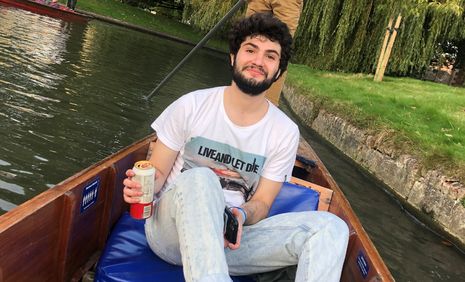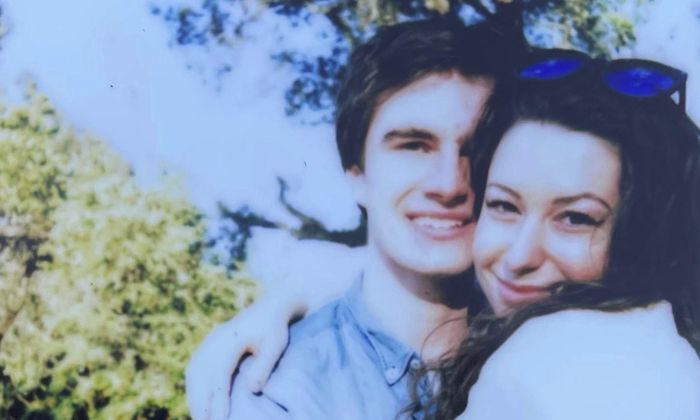Who nose when this will end?
Benny Soran comes to terms with living with parosmia, one of the jarring after-effects of long COVID

Content Note: Brief mention of anxiety and allusions to disordered eating
Imagine the worst smell you’ve ever smelt; now multiply that by 20, add 5, and then multiply that number by 100. That’s the smell that I’ve been living with ever since I caught COVID-19 in July.
After catching a relatively mild case of COVID-19 over the summer and suffering from the list of now-ubiquitous symptoms known across the world (loss of taste/smell, fever, etc), I thought that following my infection, I would be able to move freely through the world, protected by my miracle-of-modern-medicine AstraZeneca cocktail, with a dash of natural immunity.
How wrong I was.
“Deodorant smelled like decaying flesh, coffee smelled like battery acid, eggs like rotting carcass”
Three weeks after the end of my isolation I started noticing pungent smells that reeked of rotten meat: sickly sweet with notes of metal. The smells were all-encompassing: deodorant smelled like decaying flesh, coffee smelled like battery acid, eggs like rotting carcass.
I began to look for answers online. Having spent hours scrolling, looking for anything that resembled my symptoms, I found my answer in a niche group on Facebook: AbScent Parosmia and Phantosmia Support.
Parosmia, according to WebMD, refers to a smell disorder in which taste and smell become distorted. Scientists are not sure exactly what causes parosmia, but recent research has suggested that there could be a link between certain odour molecules and the receptors in the nose. If this sounds vague, it’s because it is; scientists do not understand which odour receptors in the nose these molecules link to, or why these molecules impact recovering smell receptors.
The frustration and uncertainty regarding any conclusive evidence towards what I was experiencing led me to seek out answers for myself. When I first joined AbScent’s support group, there were about 4,000 members. That number has since skyrocketed, representing 21,000 people who are no longer able to experience the smells and tastes that used to characterise their lives.
Our sense of smell is vitally important, and having now lost mine, I’ve come to understand the extent to which it is under-appreciated. Smell plays a key part in our perception of hazardous environments, relationships, and overall wellbeing.
This condition also has long-term ramifications in terms of safety, both for myself and for others. Last term, one of my housemates left her oven pizza in for too long, leading to the kitchen filling with thick smoke. At the time, I was seated in the living room, absent-mindedly doing some work. Seconds later, my housemate rushed in, flabbergasted that I was unable to smell the smoke.
“During the worst parts of my parosmia [...] the thought of eating would fill me with anxiety”
Now that I know I’m incapable of smelling smoke, I often find myself quadruple-checking the stove after I’m done cooking to ensure that I haven’t left the gas on.
However, despite the safety ramifications, what affects me the most is the impact that this has had on my day-to-day life. During the worst parts of my parosmia, when the smells of food were at their foulest, the thought of eating would fill me with anxiety. Despite knowing I needed the nutrition that food would provide, eating would often end up with me vomiting; ultimately incapable of eating more than just plain bread, yoghurt, and refrigerated vegetables, food lost its allure for me.
No longer was food something to be enjoyed with friends and family. Nights out, often beginning with dinner outings to restaurants, became an artefact of the past. The simple joy of meandering down Mill Road, greeted by the intoxicating aromas of grilled meat, velvety coffee, and fresh soap has been stolen from me.
But it’s not all theft. Cognisant of my parosmia, my housemates have humoured me by opening our windows and doors when cooking to allow smells to dissipate. As the amount of time I spend going out to eat or drink has dwindled, my housemates and I have begun to host more at our house, whipping up the foods that I find palatable.
While my parosmia is no longer the debilitating condition it once was, I still know that I have a long way to go in terms of my recovery. There are still dozens of foods that I can no longer stomach and, some days, the list seems endless enough to threaten to send me into a spiral.
But other days, when it feels like an insurmountable challenge to eat or drink anything, I stumble across a food that smells a little bit like it’s supposed to. And that is what encourages me to take a bite.
 Features / Should I stay or should I go? Cambridge students and alumni reflect on how their memories stay with them15 December 2025
Features / Should I stay or should I go? Cambridge students and alumni reflect on how their memories stay with them15 December 2025 News / Dons warn PM about Vet School closure16 December 2025
News / Dons warn PM about Vet School closure16 December 2025 News / Cambridge study finds students learn better with notes than AI13 December 2025
News / Cambridge study finds students learn better with notes than AI13 December 2025 News / News In Brief: Michaelmas marriages, monogamous mammals, and messaging manipulation15 December 2025
News / News In Brief: Michaelmas marriages, monogamous mammals, and messaging manipulation15 December 2025 Comment / The magic of an eight-week term15 December 2025
Comment / The magic of an eight-week term15 December 2025










